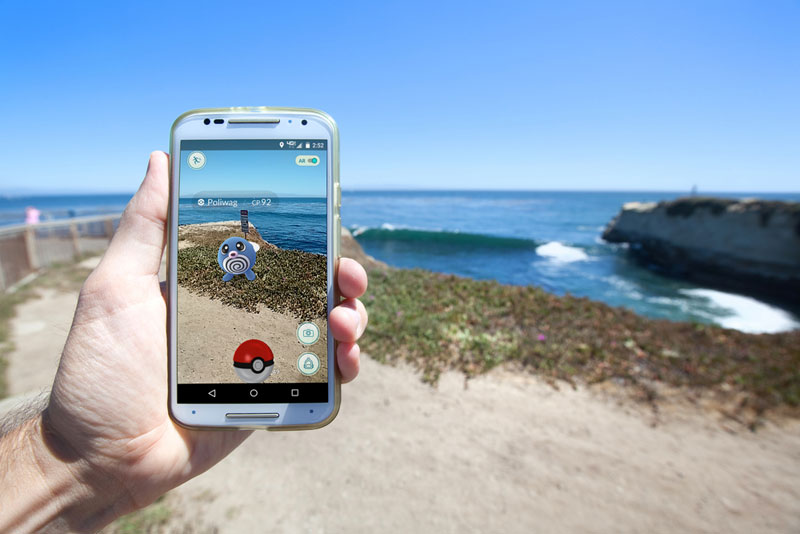Americans Took 144 Billion Steps in a Month Just to Catch Pokémon

After "Pokémon Go" debuted this past summer, one thing was clear: People's obsession with the game was making them more physically active — they were trekking all around just to "catch" the virtual creatures. But just how much did the game boost physical activity?
Scientists now have an answer: The game led Americans to take an estimated 144 billion more steps during the first month of its release, according to a new study from researchers at Microsoft and Stanford University.
In fact, the game may have a bigger impact on public health than popular mobile apps that track people's physical activity, the researchers said.
"We find that 'Pokémon Go' is able to reach low-activity populations," while leading mobile health apps tend to be used by people who are already pretty active, the researchers wrote in their findings, published Oct. 6 on arXiv.org, a website that allows scientists to post papers that have not yet undergone a peer-review process.
In the study, the researchers analyzed information from more than 30,000 users of the Microsoft Band fitness tracker who had agreed to link the data from their Band to their online activities, including their search queries using Microsoft Bing.
The researchers studied users' search queries to identify how many of these Band users were playing "Pokémon Go." They looked for queries that strongly suggested that the users were playing the game (as opposed to just looking for information about it), including "how to play pokemon go," "pokemon go servers" and "pokemon go eevee evolution."
The researchers identified a group of 1,420 people who appeared to be both Band users and "Pokémon Go" players. Then, they compared the activity of people in this group with that of another 50,000 Microsoft Band users.
Get the world’s most fascinating discoveries delivered straight to your inbox.
Over a period of 30 days, "Pokémon Go" players increased their activity by 192 steps per day, on average. For comparison, the people who were wearing the Bands but not playing the game showed a decrease of 50 daily steps, on average. (The study did not look for reasons why this decrease happened.)
What's more, the people who appeared to be very engaged with "Pokémon Go" — those who had at least 10 search queries related to playing the game — increased their activity by 1,473 steps per day, on average, representing a 25 percent boost over their previous activity level. These engaged players were also three times more likely to meet national physical activity guidelines after they started "Pokémon Go," compared with before. [The Truth About '10,000 Steps' a Day]
The researchers estimated that if all 25 million U.S. "Pokémon Go" players experienced a similar boost in activity as the average player in their study, then they would have collectively taken 144 billion extra steps in 30 days.
The researchers also calculated that if users sustained an increase of 1,000 steps per day, it would be expected to add 41 days to each individual's life, which would add up to2.8 million years of life for the 25 million U.S. "Pokémon Go" players, they said.
"We see great promise for public health in designing geocentric games like 'Pokémon Go' and in working to sustain users' engagement with them," the researchers wrote in their findings.
Playing "Pokémon Go" might not even feel like exercise, in part because the game gives users novel goals — to catch Pokémon characters — rather than setting a specific amount of activity for people to work toward, Dale Bond, an assistant professor of psychiatry and human behavior at Brown University in Rhode Island, told Live Science in an interview shortly after the game was released this past summer.
And although most players are engaging in fairly light activity during the game, it's still better than staying sedentary, he said. "The longer you're moving, the more calories you're going to burn, and the better it's going to be for your overall health," Bond said.
Original article on Live Science.

Rachael is a Live Science contributor, and was a former channel editor and senior writer for Live Science between 2010 and 2022. She has a master's degree in journalism from New York University's Science, Health and Environmental Reporting Program. She also holds a B.S. in molecular biology and an M.S. in biology from the University of California, San Diego. Her work has appeared in Scienceline, The Washington Post and Scientific American.



